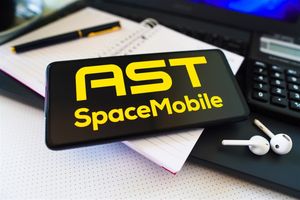Humanigen, Inc. (Nasdaq: HGEN) (“Humanigen”), a late-stage clinical biopharmaceutical company focused on preventing and treating an immune hyper-response called ‘cytokine storm’ with its lead drug candidate, lenzilumab, confirms that notice was received today from the National Institute of Allergy and Infectious Diseases (NIAID) that they have completed database lock for the Big Effect Trial of lenzilumab (BET-B) being conducted as part of the National Institutes of Health (NIH) public-private partnership Accelerating COVID-19 Therapeutic Interventions and Vaccines (ACTIV). NIH/NIAID has cleaned and locked the blinded data in the study. This significant milestone allows NIH/NIAID to complete topline analysis. Humanigen expects to receive topline results from NIH/NIAID in July.
“Locking the database marks a crucial step in the process of NIH/NIAID completing the evaluation of lenzilumab for patients hospitalized with COVID-19 and reporting the results of its study. We look forward to being able to share topline results once received from NIH/NIAID,” said Cameron Durrant, Chairman and Chief Executive Officer, Humanigen.
Lenzilumab is an investigational product and is not approved or authorized in any country.
About ACTIV-5/BET-B
The Accelerating Covid-19 Therapeutic Interventions and Vaccines (ACTIV) is a National Institutes of Health (NIH) directed public-private partnership to develop a coordinated research strategy for prioritizing and speeding development of the most promising treatments and vaccines. ACTIV is led by a working group of senior scientists representing government, industry, non-profit, philanthropic, and academic organizations and is pursuing five fast-track focus areas most ripe for opportunity, one of which is accelerating clinical testing of the most promising vaccines and treatments.1 Within this focus area ACTIV-5 (Big Effect Trial, BET) is a series of randomized, double-blind, placebo-controlled trials using common assessments and endpoints to evaluate whether certain therapies, approved or investigational, show promise treating patients hospitalized with COVID-19.2
Within ACTIV-5, lenzilumab is the first and only anti-human GM-CSF treatment to be tested in ACTIV as a concomitant therapy with remdesivir compared with placebo plus remdesivir. Lenzilumab was selected from among 400 compounds that were considered for investigation in ACTIV.3 The study began in October 2020 and was comprised of hospitalized patients who need medical care for COVID-19 pneumonia and randomized (1:1) to the treatment groups. Patients receive a loading dose of 200-mg intravenous (IV) remdesivir on day 1 followed by a 100-mg once-daily IV maintenance dose up to a 10-day total course while hospitalized. Lenzilumab (or placebo) is administered at 600-mg IV lenzilumab infusion every 8 hours starting on Day 1 for a total of three doses. Patients hospitalized with COVID-19 and requiring oxygen supplementation were recruited from 63 sites across the U.S. and two sites in South Korea. The pre-specified primary analysis population consists of patients in the intent to treat (ITT) population with a CRP<150 mg/L and age<85 years not requiring mechanical ventilation or ECMO at baseline. The primary endpoint is the proportion of patients, in the primary analysis population, that died or required mechanical ventilation or ECMO through day 29.4
About Lenzilumab
Lenzilumab is a proprietary Humaneered® first-in-class monoclonal antibody that has been proven to neutralize GM-CSF, a cytokine of critical importance in the hyperinflammatory cascade, sometimes referred to as cytokine release syndrome, or cytokine storm, associated with COVID-19 and other indications. Lenzilumab binds to and neutralizes GM-CSF, potentially improving outcomes for patients hospitalized with COVID-19. Positive data from LIVE-AIR demonstrated lenzilumab improved the likelihood of survival without the need for mechanical ventilation in hospitalized COVID-19 patients (HR=1.54, p=0.040).5 In LIVE-AIR, patients with a CRP < 150 mg/L derived the greatest benefit from lenzilumab demonstrating a 62% reduction in the risk of mechanical ventilation or death (OR=0.38, nominal p=0.005).6
Humanigen believes that GM-CSF neutralization with lenzilumab also has the potential to reduce the hyper-inflammatory cascade known as cytokine release syndrome common to chimeric antigen receptor T-cell (CAR-T) therapy and acute Graft versus Host Disease (aGvHD).
In CAR-T, lenzilumab successfully achieved the pre-specified primary endpoint at the recommended dose in a Phase 1b study with Yescarta® in which the overall response rate was 100% and no patient experienced severe cytokine release syndrome or severe neurotoxicity. Based on these results, Humanigen plans to test lenzilumab in a randomized, multicenter, potentially registrational, Phase 3 study (“SHIELD”) to evaluate its efficacy and safety when combined with Yescarta and Tecartus® CAR-T therapies in non-Hodgkin lymphoma. Lenzilumab will also be tested to assess its ability to prevent and/or treat aGvHD in patients undergoing allogeneic hematopoietic stem cell transplantation.
A study of lenzilumab is also underway for patients with chronic myelomonocytic leukemia (CMML) exhibiting RAS pathway mutations. This study builds on evidence from a Phase 1 study, conducted by Humanigen, that showed RAS mutations are associated with hyper-proliferative features, which may be sensitive to GM-CSF neutralization.
About Humanigen
Humanigen, Inc. (Nasdaq: HGEN) (“Humanigen”), is a late-stage clinical biopharmaceutical company focused on preventing and treating an immune hyper-response called ‘cytokine storm’. Lenzilumab is a first-in class antibody that binds to and neutralizes granulocyte-macrophage colony-stimulating factor (GM-CSF). Results from preclinical models indicate GM-CSF is an upstream regulator of many inflammatory cytokines and chemokines involved in the cytokine storm. Early in the COVID-19 pandemic, investigation showed high levels of GM-CSF secreting T cells were associated with disease severity and intensive care unit admission. Humanigen’s Phase 3 LIVE-AIR study suggests early intervention with lenzilumab may prevent consequences of a full-blown cytokine storm in hospitalized patients with COVID-19. Humanigen is developing lenzilumab as a treatment for cytokine storm associated with COVID-19 and CD19-targeted CAR-T cell therapies and is also exploring the effectiveness of lenzilumab in other inflammatory conditions such as acute Graft versus Host Disease in patients undergoing allogeneic hematopoietic stem cell transplantation, eosinophilic asthma, and rheumatoid arthritis. For more information, visit www.humanigen.com and follow Humanigen on LinkedIn, Twitter, and Facebook.
Forward-Looking Statements
This press release contains forward-looking statements. Forward-looking statements reflect management's current knowledge, assumptions, judgment, and expectations regarding future performance or events. Although management believes that the expectations reflected in such statements are reasonable, they give no assurance that such expectations will prove to be correct, and you should be aware that actual events or results may differ materially from those contained in the forward-looking statements. Words such as "will," "expect," "intend," "plan," "potential," "possible," "goals," "accelerate," "continue," and similar expressions identify forward-looking statements, including, without limitation, statements regarding the anticipated time for release of topline data from the ACTIV-5/BET-B study and other statements regarding our plans relating to lenzilumab.
Forward-looking statements are subject to a number of risks and uncertainties including, but not limited to, the risks inherent in the Company’s lack of profitability and need for additional capital to grow its business; the Company’s dependence on partners to further the development of its product candidates; the uncertainties inherent in the development, attainment of the requisite regulatory authorizations and approvals and launch of any new pharmaceutical product; the outcome of pending or future litigation or arbitration; and the various risks and uncertainties described in the "Risk Factors" sections of the Company’s latest annual and quarterly reports and other filings with the SEC.
All forward-looking statements are expressly qualified in their entirety by this cautionary notice. You should not rely upon any forward-looking statements as predictions of future events. The Company undertakes no obligation to revise or update any forward-looking statements made in this press release to reflect events or circumstances after the date hereof, to reflect new information or the occurrence of unanticipated events, to update the reasons why actual results could differ materially from those anticipated in the forward-looking statements, in each case, except as required by law.
References
- U.S. Department of Health and Human Services. (n.d.). Accelerating COVID-19 Therapeutic Interventions and Vaccines (ACTIV). National Institutes of Health. Retrieved June 17, 2022, from https://www.nih.gov/research-training/medical-research-initiatives/activ
- U.S. Department of Health and Human Services. (2022, June 2). Covid-19 Therapeutics prioritized for testing in clinical trials. National Institutes of Health. Retrieved June 17, 2022, from https://www.nih.gov/research-training/medical-research-initiatives/activ/covid-19-therapeutics-prioritized-testing-clinical-trials
- Collins, D. F. (2021, February 16). ACTIV Update: Making major strides in covid-19 Therapeutic Development. NIH Director's Blog. https://directorsblog.nih.gov/2021/02/16/activ-update-making-major-strides-in-covid-19-therapeutic-development/ (accessed July 30, 2021)
- Activ-5 / big effect trial (BET-B) for the treatment of COVID-19 - Full Text View. Full Text View - ClinicalTrials.gov. (2022, February 28). Retrieved June 2, 2022, from https://www.clinicaltrials.gov/ct2/show/NCT04583969
- Temesgen, Z. et al. (2021). Lenzilumab in hospitalised patients with COVID-19 pneumonia (LIVE-AIR): a phase 3, randomised, placebo-controlled trial. The Lancet Respiratory Medicine. https://doi.org/10.1016/S2213-2600(21)00494-X
- Temesgen, Z., et al. (2022). Early lenzilumab treatment of COVID-19 patients using C-reactive protein as a biomarker improves efficacy: Results from the phase 3 ‘live-air’ trial. MedRxiv. https://doi.org/10.1101/2021.12.30.21267140
View source version on businesswire.com: https://www.businesswire.com/news/home/20220630005489/en/
Contacts
Humanigen Investor Relations
Ken Trbovich
Humanigen
trbo@humanigen.com
650-410-3206





